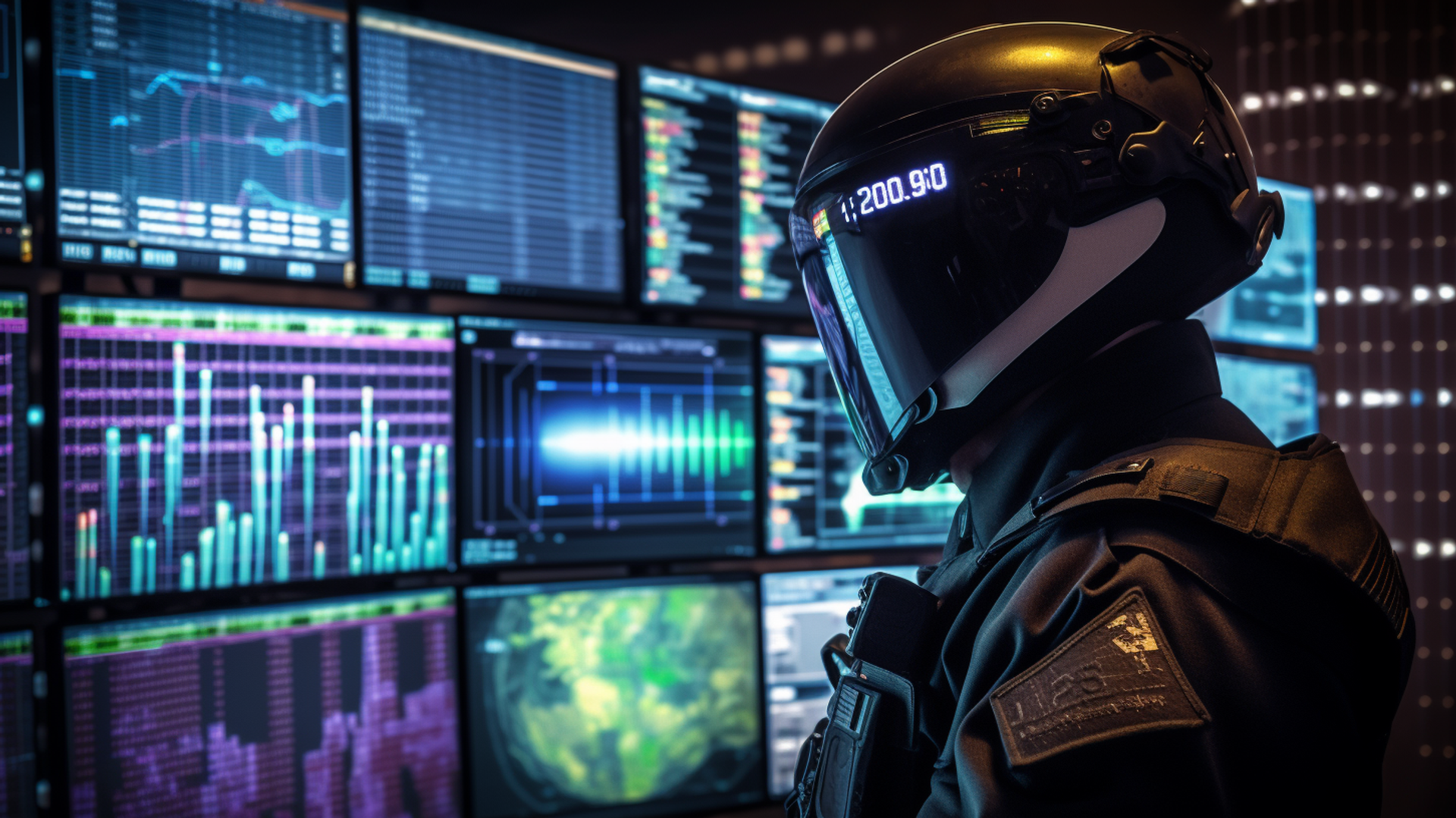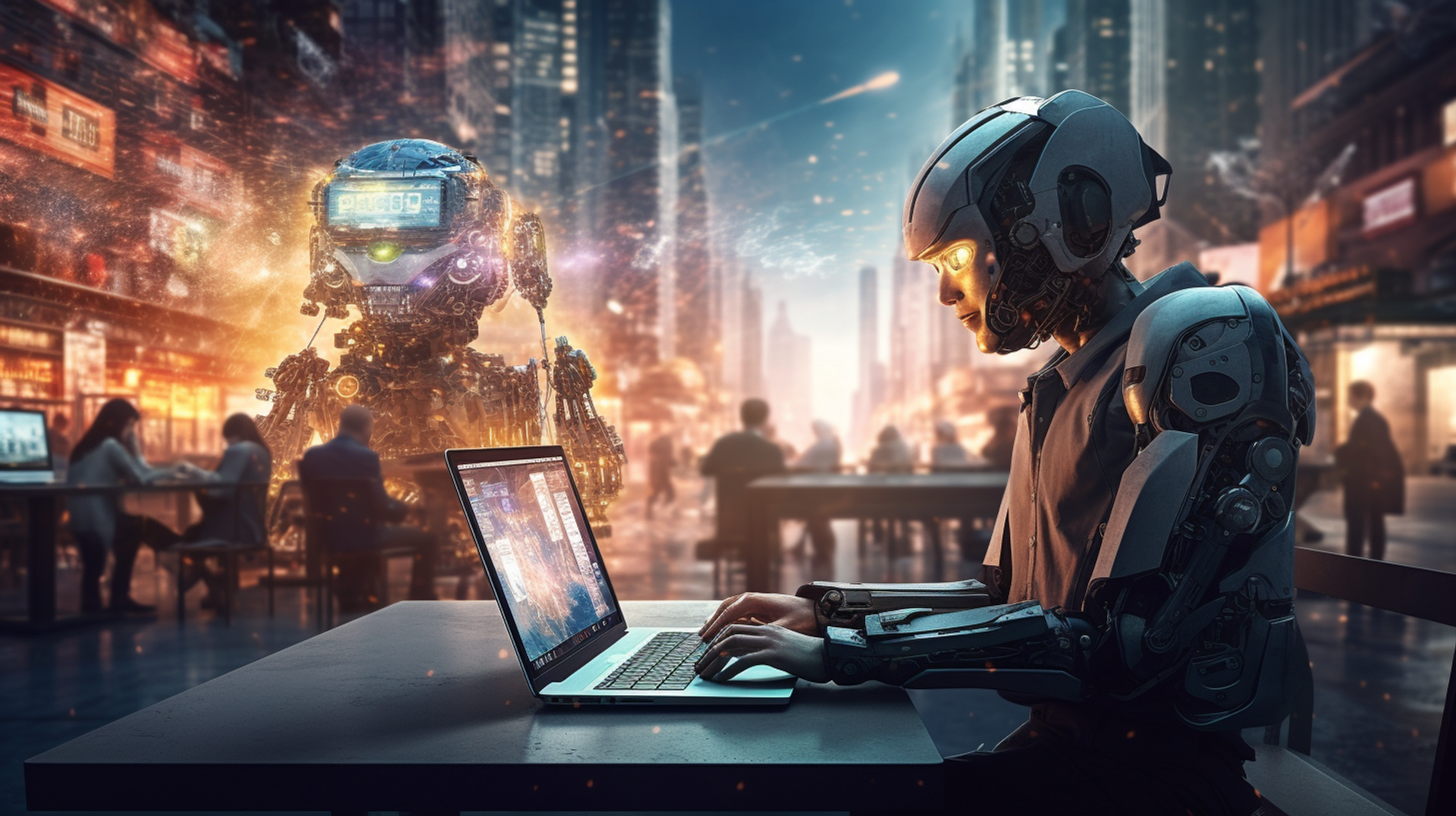https://sputniknews.in/20231221/india-would-benefit-from-partnering-with-russia-in-ai-research-says-expert-5916081.html
India Would Benefit from Partnering with Russia in AI Research, Says Expert
India Would Benefit from Partnering with Russia in AI Research, Says Expert
Sputnik India
In an interview with Sputnik India, Nishakant Ojha, a Ph.D. and post-doctoral fellow in artificial intelligence and machine learning, discussed avenues for... 21.12.2023, Sputnik India
2023-12-21T21:03+0530
2023-12-21T21:03+0530
2023-12-21T21:10+0530
sputnik opinion
india
new delhi
delhi
artificial intelligence (ai)
science & tech
tech hub
cloud technology
android technics
https://cdn1.img.sputniknews.in/img/07e7/0b/14/5502184_3:0:1454:816_1920x0_80_0_0_8f74b5318b7abf1e821a399559fc9e05.png
India has made great strides in the technology sector in recent years, particularly in Artificial Intelligence (AI).According to the National Association of Software and Service Companies (NASSCOM), an Indian non-governmental trade association and advocacy group for the technology industry, India boasts the highest penetration factor of AI skills.The advocacy group further states that India ranks fifth in scientific publications on AI and by 2026, AI-driven disruption across sectors could add $500 billion to the country's economy.However, there are still several bottlenecks that need to be addressed in order to effectively deploy the technology and reap the maximum benefits.Sputnik India reached out to Prof (Dr) Nishakant Ojha, an advisor on cyber and aerospace security and counter-terrorism in West Asia and the Middle East, and a Ph.D. and post-doctoral scholar in artificial intelligence and machine learning, to understand how India can succeed in effectively using AI.This year has witnessed remarkable transformations in the tech sector, particularly with the emergence of Artificial Intelligence (AI) taking center stage, propelled by the notable advancements made by ChatGPT and avatars. However, it also poses a threat to millions of people who fear their jobs could be replaced.Sharing his views on this matter, Ojha informed Sputnik India that AI's rapid progress has resulted in extraordinary transformations throughout several industries, reshaping the way organisations function and the nature of work they engage in.AI's Impact on Today's WorldHowever, he agreed that while AI has the potential to improve productivity, reduce costs and drive innovation, concerns about job displacement, ethical considerations and privacy and security issues have emerged.Explaining that the impact of ChatGPT and AI on these sectors is a mix of job creation, job transformation and job displacement, Ojha said that while AI technologies can lead to greater efficiency and new opportunities, they also pose challenges as far as job displacement goes, requiring re-training and re-education efforts.AI's Defence Opportunities The cyber and aerospace security advisor believes that AI has an important role to play in national defence, with personal and commercial vulnerabilities becoming potential national security threats due to widespread digital dependency.However, he strongly believes that AI systems utilised in disinformation campaigns and cyber-attacks pose significant threats. These adversaries thrive on exploiting the inherent openness of the digital realm, enabling them to gather data and manipulate it for their nefarious purposes.He explained that AI's competitive advantage stems from its superior ability to discern, make decisions, and take actions with greater speed and precision than humans, particularly in complex environments.The tech expert also believes that the Indian government and non-state entities are expected to use AI for military purposes, addressing challenges such as zero-day cyber threats and polymorphic malware.Addressing Bottlenecks for Optimised UseWhen discussing ways to overcome obstacles hindering the efficient application of AI in defence, Ojha emphasised the significance of constructing a unified digital framework, providing proper training for digitally competent staff, implementing agile acquisition practices, stabilising budgets, and closely monitoring procedures. Additionally, he recommended replacing outdated military systems with advanced capabilities suited for AI-based warfare. Ojha stressed the need for India to take this matter seriously and accordingly devise a comprehensive plan for enhancing critical aspects of the nation's defence ecosystem.Countries Look to AI for Military AdvancementsNations around the world are investing in AI concepts and technologies for military applications, testing AI algorithms in military games based on real-world scenarios, and to avoid being outmatched on the future battlefield, the Indian military must adapt to a new war-fighting paradigm characterised by AI and other emerging technologies.The cyber and aerospace security advisor highlighted the importance of recognising Russia as a potential academic and research partner that can contribute to the establishment of a significant incubator cell or centre of excellence. To achieve tangible outcomes and ensure responsibility, India must establish specific performance targets and metrics for both AI and digital readiness.How India Can Use AI For DefenceIndia should direct the military services to immediately assess AI skill gaps, inform recruitment and talent management plans and submit a report within a year, Ojha said, adding that assessing the required number of civilian and military personnel in software development, data science and AI is also critical for effective integration.He also highlighted efforts to develop a digital workforce capable of buying, building and deploying AI and related technologies.Ojha spotlighted the importance of implementing purposeful policies to fully leverage the advantages of the AI revolution. He believes that it is vital to establish policies specifically designed for short-term goals, integrate AI into current strategies, such as the Modi policy, and develop plans for the medium and long term. However, he cautioned that neglecting to do so might cause India to forfeit the full benefits of AI and potentially lag behind nations like the US and China.Challenges in AI AdoptionThe rapid adoption of AI presents both unique opportunities and challenges for India, but the South Asian giant has been steadily growing in this area.Highlighting the challenges in adopting AI, he said that the conceptual design of cloud computing infrastructure, which is essential for storing massive data and providing the immense computing power required for AI, is largely located outside India's borders.He further said that the lack of a substantial native installation base for on-demand cloud computing infrastructure in India also restricts government-funded research labs from accessing the latest AI advancements.The cyber and aerospace security advisor believes Indian policymakers should integrate AI as a critical component of Prime Minister Narendra Modi's flagship programmes.While India may be late in embracing the AI revolution, various stakeholders including consumers, technocrats, researchers and entrepreneurs of Indian origin are already active participants in the global AI landscape.A powerful appeal from the Prime Minister urging collaboration in establishing an AI ecosystem in India would greatly accelerate the nation's journey towards an AI-powered future.
https://sputniknews.in/20231110/india-to-become-worlds-largest-software-hub-by-2027-5342920.html
india
new delhi
delhi
Sputnik India
feedback.hindi@sputniknews.com
+74956456601
MIA „Rossiya Segodnya“
2023
Rahul Trivedi
https://cdn1.img.sputniknews.in/img/07e6/0c/13/136500_0:0:628:627_100x100_80_0_0_72097ff894c7446b70d2efafcb719720.jpg
Rahul Trivedi
https://cdn1.img.sputniknews.in/img/07e6/0c/13/136500_0:0:628:627_100x100_80_0_0_72097ff894c7446b70d2efafcb719720.jpg
News
en_IN
Sputnik India
feedback.hindi@sputniknews.com
+74956456601
MIA „Rossiya Segodnya“
Sputnik India
feedback.hindi@sputniknews.com
+74956456601
MIA „Rossiya Segodnya“
Rahul Trivedi
https://cdn1.img.sputniknews.in/img/07e6/0c/13/136500_0:0:628:627_100x100_80_0_0_72097ff894c7446b70d2efafcb719720.jpg
artificial intelligence, machine learning, nishakant ojha, artificial intelligence in defence, national association of software and service companies, nasscom, technology in india, deployment of ai in india, adoption of ai in india, challenges for india in adoption of ai
artificial intelligence, machine learning, nishakant ojha, artificial intelligence in defence, national association of software and service companies, nasscom, technology in india, deployment of ai in india, adoption of ai in india, challenges for india in adoption of ai
India Would Benefit from Partnering with Russia in AI Research, Says Expert
21:03 21.12.2023 (Updated: 21:10 21.12.2023) In an interview with Sputnik India, Nishakant Ojha, a Ph.D. and post-doctoral fellow in artificial intelligence and machine learning, discussed avenues for advancement where India would be able to effectively use artificial intelligence.
India has made great strides in the technology sector in recent years, particularly in Artificial Intelligence (AI).
According to the National Association of Software and Service Companies (NASSCOM), an Indian non-governmental trade association and advocacy group for the technology industry, India boasts the highest penetration factor of AI skills.
The advocacy group further states that India ranks fifth in scientific publications on AI and by 2026,
AI-driven disruption across sectors could add $500 billion to the country's economy.
However, there are still several bottlenecks that need to be addressed in order to effectively deploy the technology and reap the maximum benefits.
Sputnik India reached out to Prof (Dr)
Nishakant Ojha, an advisor on
cyber and aerospace security and counter-terrorism in West Asia and
the Middle East, and a Ph.D. and post-doctoral scholar in artificial intelligence and machine learning, to understand
how India can succeed in effectively using AI.
This year has witnessed remarkable transformations in the tech sector, particularly with the emergence of Artificial Intelligence (AI) taking center stage, propelled by the notable advancements made by ChatGPT and avatars. However, it also poses a threat to millions of people who fear their jobs could be replaced.
Sharing his views on this matter, Ojha informed Sputnik India that AI's rapid progress has resulted in extraordinary transformations throughout several industries, reshaping the way organisations function and the nature of work they engage in.
"ChatGPT has attracted considerable attention for its human-like text generation capabilities and potential applications in numerous sectors within the field of AI technologies. As AI continues to evolve, there is an increasing need to understand its impact on jobs and employment, as well as the opportunities and challenges it presents," he stated.
AI's Impact on Today's World
However, he agreed that while AI has the potential to improve productivity, reduce costs and drive innovation, concerns about job displacement, ethical considerations and privacy and security issues have emerged.
Analysing the impact of ChatGPT and AI on jobs and employment across different sectors, he highlighted that sectors such as healthcare, finance, retail and e-commerce, manufacturing, education, human resources, customer service, and media and content creation will benefit the most.
Explaining that the impact of ChatGPT and AI on these sectors is a mix of job creation, job transformation and job displacement, Ojha said that while AI technologies can lead to greater efficiency and new opportunities, they also pose challenges as far as job displacement goes, requiring re-training and re-education efforts.
AI's Defence Opportunities
The cyber and aerospace security advisor believes that AI has an important role to play in national defence, with personal and commercial vulnerabilities becoming potential national security threats due to widespread digital dependency.
However, he strongly believes that AI systems utilised in disinformation campaigns and cyber-attacks pose significant threats. These adversaries thrive on exploiting the inherent openness of the digital realm, enabling them to gather data and manipulate it for their nefarious purposes.
"In this new era of combat, AI-enabled capabilities will be at the forefront of defence against rogue governments, terrorists and criminals with access to applications ranging from deepfakes to lethal drones," Ojha stressed.
He explained that AI's competitive advantage stems from its superior ability to discern, make decisions, and take actions with greater speed and precision than humans, particularly in complex environments.
The tech expert also believes that the Indian government and non-state entities are expected to use AI for military purposes, addressing challenges such as zero-day cyber threats and polymorphic malware.
"The growth of these threats underscores the need for enhanced cyber defences that employ a layered approach based on cloud-based cognitive AI platforms for continuous threat training," Ojha said, adding that any failure to accelerate the use of AI in military tasks could lead to a loss of competitive military strength within the next decade.
Addressing Bottlenecks for Optimised Use
When discussing ways to overcome obstacles hindering the efficient application of AI in defence, Ojha emphasised the significance of constructing a unified digital framework, providing proper training for digitally competent staff, implementing agile acquisition practices, stabilising budgets, and closely monitoring procedures.
Additionally, he recommended replacing outdated military systems with advanced capabilities suited for AI-based warfare. Ojha stressed the need for India to take this matter seriously and accordingly devise a comprehensive plan for enhancing critical aspects of the nation's defence ecosystem.
"AI will transform all aspects of military operations, assisting in preparation, perception, understanding, decision-making and execution. Weapon systems will incorporate one or more AI technologies, creating battle networks that connect systems across domains," according to the AI & ML expert.
Countries Look to AI for Military Advancements
Nations around the world are investing in AI concepts and technologies for military applications, testing AI algorithms in military games based on real-world scenarios, and to avoid being outmatched on the future battlefield, the Indian military must adapt to a new war-fighting paradigm characterised by AI and other emerging technologies.
"This paradigm shift requires experimentation, fostering a culture of considering potential adversary techniques and creating new operational concepts. Countries like Russia, which have mastered the mathematical computational processes that are the backbone of AI and next-generation technologies, should work together more closely," Ojha explained.
The cyber and aerospace security advisor highlighted the importance of recognising Russia as a potential academic and research partner that can contribute to the establishment of a significant incubator cell or centre of excellence. To achieve tangible outcomes and ensure responsibility, India must establish specific performance targets and metrics for both AI and digital readiness.
How India Can Use AI For Defence
India should direct the military services to immediately assess AI skill gaps, inform recruitment and talent management plans and submit a report within a year, Ojha said, adding that assessing the required number of civilian and military personnel in software development, data science and AI is also critical for effective integration.
He also highlighted efforts to develop a digital workforce capable of buying, building and deploying AI and related technologies.
"Establishing a digital force for cabinet-level departments and selected agencies responsible for recruiting, training, and managing staff is critical. This force would oversee digital careers, set qualification criteria, and guide staffing tasks within agencies to ensure a competent and organised digital workforce," the AI & ML expert said.
Ojha spotlighted the importance of implementing purposeful policies to fully leverage the advantages of the AI revolution. He believes that it is vital to establish policies specifically designed for short-term goals, integrate AI into current strategies, such as the Modi policy, and develop plans for the medium and long term.
However, he cautioned that neglecting to do so might cause India to forfeit the full benefits of AI and potentially lag behind nations like the
US and
China.
Challenges in AI Adoption
The rapid adoption of AI presents both unique opportunities and challenges for India, but the South Asian giant has been steadily growing in this area.
Highlighting the challenges in adopting AI, he said that the conceptual design of cloud computing infrastructure, which is essential for storing massive data and providing the immense computing power required for AI, is largely located outside India's borders.
He further said that the lack of a substantial native installation base for on-demand cloud computing infrastructure in India also restricts government-funded research labs from accessing the latest AI advancements.
"Additionally, industries are reluctant to store data outside of India due to the Indian government's limited control over algorithms, making AI adoption more expensive for the private sector. This infrastructure gap is preventing India from reaching the tipping point in AI efficiency and productivity, despite ongoing consumer adoption," said Ojha.
The cyber and aerospace security advisor believes Indian policymakers should integrate AI as a critical component of Prime Minister
Narendra Modi's flagship programmes.
"For example, under the Make in India initiative, there should be special incentives for manufacturers to invest in automation research, set up research labs and design studios, and create innovation clusters around manufacturing automation and robotics," he said, citing examples of other programmes such as Skill India, Digital India and others.
While India may be late in embracing the AI revolution, various stakeholders including consumers, technocrats, researchers and entrepreneurs of Indian origin are already active participants in the global AI landscape.
A powerful appeal from the Prime Minister urging collaboration in establishing an AI ecosystem in India would greatly accelerate the nation's journey towards an AI-powered future.





